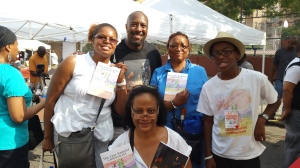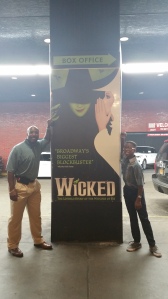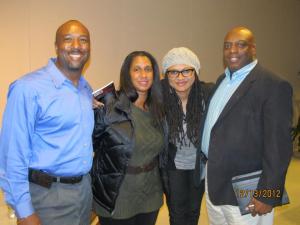Did you know that only six percent of traditionally published books among U.S. authors are written by black people?
I didn’t either until one of the organizers of the BLACK WORD MAGIC Authors, Illustrators and Publishers Fair made me aware of this fact during a lengthy telephone conversation in early August 2023. For the longest time, I thought this percentage was much higher, largely due to the success achieved by authors like Alice Walker (The Color Purple) and Terry McMillan (Waiting to Exhale), as well as the late E. Lynn Harris (Invisible Life) and Eric Jerome Dickey (Milk in My Coffee) during the 1990s and early 2000s.
While I had no reason to doubt the BLACK WORD MAGIC organizer’s report, I had to uncover these facts for myself. That’s when I came across an online article, written by Dimitrije Curcic (May 12, 2023), titled Black Author Statistics.
Curcic writes that while the number of black authors among U.S. authors stands at 6.28 percent, the share of black authors among all U.S. authors increased by 19.29 percent in 2020 compared to 2019. “With this huge jump occurring in 2020,” Curcic writes, “black authors were able to recover their 2014 numbers when it came to their share among all authors in the country.”
So, does this mean traditional publishers are more willing than not to publish books written by black authors?
Maybe.
When I continued my reading of Curcic’s online article, I learned that:
- Over 10,727 black authors and writers are currently in the US as of 2020.
- 2020 was great for black authors, as their number jumped by 20.38% compared to 2019.
- This was also the first year in US history with over 10,000 black authors officially registered in the government database.
- Before 2020, the number of registered black authors remained stagnant, hovering around 8,900 for several years.
- Overall, since 2014, the number of black authors has increased by 21.88%, but it’s important to point out that basically all of these gains occurred solely during 2020.
The first question we black authors must ask ourselves is, “What costs must we pay to become published authors?” After this question has been answered, we must then determine if the black author-written books currently being sold are written in such a way as to not make white people feel uncomfortable. Knowing the latter will let us know whether the publishing industry continues to allow white prejudice, racism, discrimination and bias to determine which titles are worthy of traditional publication.
The Big Five Publishers – Penguin/Random House, Hachette Book Group, Harper Collins, Simon and Schuster and Macmillan – are not oblivious to the well-funded movement among white American conservatives calling for the banning of books promoting diversity, equity and inclusion. They also aren’t oblivious to this assertion by white American conservatives that American teachers are teaching Critical Race Theory when they reference history specific to black Americans’ struggle for freedom, equal rights and protections under the law. I write this because the publishing industry, just like the Oscars, has always been so white, seemingly suppressing black narratives so members of the white majority won’t be offended.
But know this: white audiences want to read these black narratives. The enlightened members of the white majority want to understand our struggle so they can work with us Blacks to right their white ancestors’ wrongs. More than anything, at least two-thirds of them want to stop the practice of harboring prejudice and bias toward us Blacks, for they know a focus on others (Blacks and other nonwhites) rather than themselves, their racial group, is the key to helping the American union become more perfect.
That’s why the banning of black books and the censorship of Black History are wrong. We Blacks did not achieve victories during Reconstruction and the Civil Rights Movement of the 1950s and ’60s to see a small group of unenlightened, white American conservatives cry foul about how these books and this history make K-12 children and adolescents hate their country. Truly concerned white adults recognize these statements for what they are – lies – and should want their children to read black books and learn Black History so their children can get in touch with their selfless selves. The selfless self demands that one do unto others as he or she would have others do unto themselves. In the words of singer Aretha Franklin, all we Blacks want is a little respect, public displays of sacrificial affection.
But as I sat at my vendor booth at the BLACK WORD MAGIC Fair, watching avid readers of all racial hues flip through the pages of their next great black reads, I concluded that more work needs to be done to get black books into the hands of a diverse group of readers, including Whites. While we black authors have an obligation to write stories that speak to black people’s experiences in America, the fact still remains that many of us black authors just want to produce content that entertains, educates and enlightens.
There are a number of black-owned and operated publishing houses. I found 191 of them on Troy Johnson’s African American Literature Book Club site. Johnson didn’t apply a ranking system to these entries (he organized them in alphabetical order), but ever since I started writing professionally, the ones that I have been hearing about the most are Third World Press, Just Us Books and Triple Crown Publications.
That’s why I’m a fan of the African American Literature Book Club. Johnson created aalbc.com as a place where readers can go to discover books written by both traditionally published and independently published black authors.
But we black authors also need to feel like we’re part of something much bigger than ourselves. That’s why I’m also a fan of the Black Writers Collective and the Hurston/Wright Foundation.
The administrators of the Black Writers Collective are committed to helping us members share and help each other become published authors through a mutual exchange of resources, insights, and sharing of experiences from which we grow.
Founded in 1990 by author Marita Golden and cultural activist Clyde McElvene, the Hurston/Wright Foundation offers in-person summer workshops, virtual courses and award ceremonies that celebrate and amplify black literary voices. Named after esteemed authors Zora Neale Hurston and Richard Wright, both Golden and McElvene believed more needed to be done to promote and honor African American authors.
But the black-owned and operated company that has been most responsible for helping me get the word out about my books is BlackPR.com. Founded by business entrepreneur Dante Lee nearly 25 years ago, BlackPR.com offers the most extensive press release distribution to the Black media that I have seen, and has served over 5,000 clients.
That being said, while it is true only six percent of traditionally published books among U.S. authors are written by black people, the fact remains that we black people are never going to stop writing, sharing our individual and collective truths. If we have the audacity to call ourselves creative writers, our intent is to produce written works that entertain, educate and enlighten. Once our written works have been produced, it is our hope there will be readers standing at the ready to support our efforts with their dollars.
To support my efforts with your dollars, visit my Amazon Authors Page.
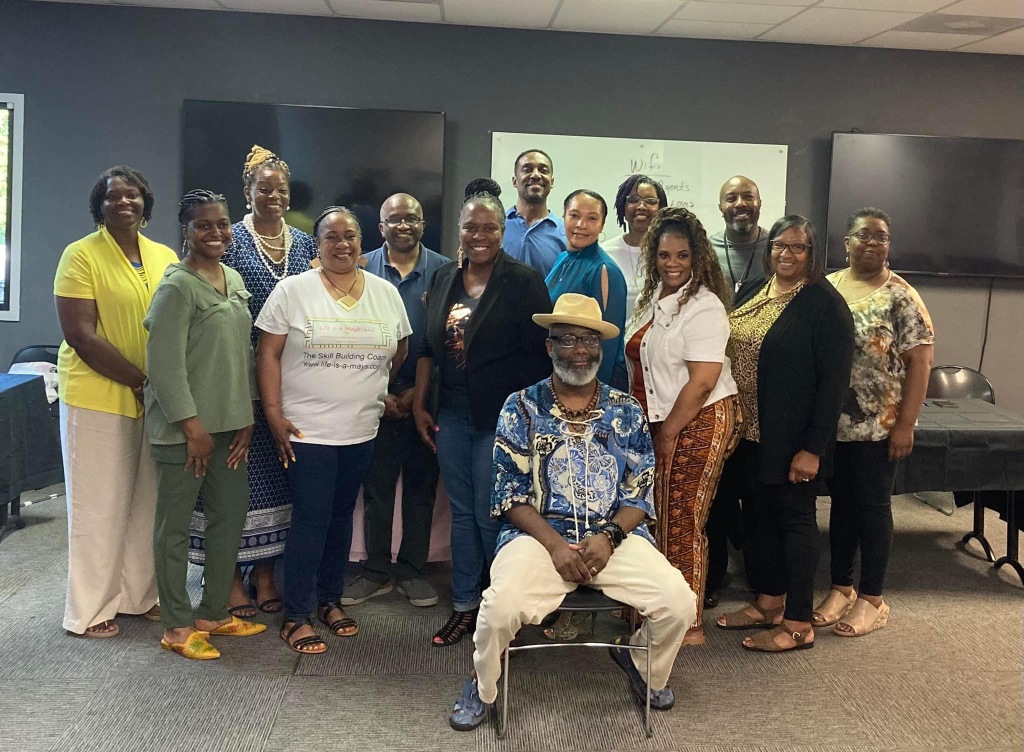

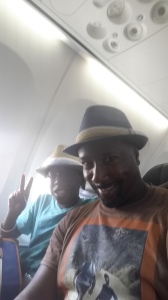
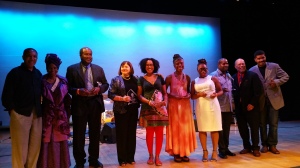
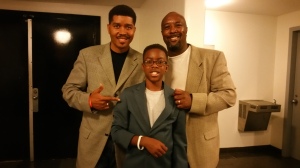
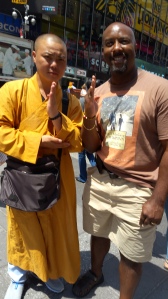
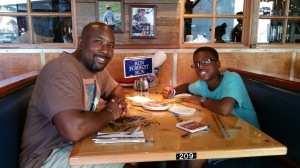
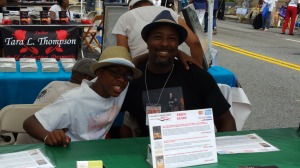 Selling books at the Harlem Book Fair was a transformative experience for my son and me. As people stepped to our table to inquire about our titles, we had to dig deep to give them good reasons to purchase them. I told them that the first book in the Adinkrahene series is all about introducing readers to a new reality, one in which a select group of Black men and women (100 total) are lower-case gods, and they mainly use their supernatural abilities to establish peace and prosperity for all, not exact vengeance upon their enemies, the Anglo-controlled (but Satarian-possessed) Corporate Cabal.
Selling books at the Harlem Book Fair was a transformative experience for my son and me. As people stepped to our table to inquire about our titles, we had to dig deep to give them good reasons to purchase them. I told them that the first book in the Adinkrahene series is all about introducing readers to a new reality, one in which a select group of Black men and women (100 total) are lower-case gods, and they mainly use their supernatural abilities to establish peace and prosperity for all, not exact vengeance upon their enemies, the Anglo-controlled (but Satarian-possessed) Corporate Cabal.